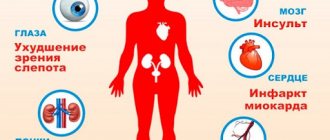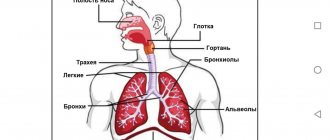Why are they afraid of doctors?
The fear of going to the doctor is familiar to many. Especially when it is associated with unpleasant sensations. Let’s say you have a headache, and a person endures it until the last minute, trying to get by with home remedies. Maybe it will work out!
However, not everything always ends well. Constant pain forces you to go to the clinic, and this is a very sad procedure! Walking around the offices, doing research, giving injections. An unpleasant diagnosis. Unforeseen financial costs. And although health should be above all, unfortunately, not everyone clearly understands this.
So the fear of the Aesculapians has a very real basis. Sometimes a late visit to the doctor turns into a serious problem. The disease becomes irreversible, and this often leads to a tragic outcome.
People worry about different things. It is not uncommon to need to measure your blood pressure. As soon as the doctor said let’s try him on, his heart skipped a beat and began to beat faster, and anxiety appeared. The doctor measured my blood pressure once or twice, and then said with concern that it was elevated and prescribed medicine. And you may not need to take it at all.
I remember how a classmate entered a military school. The therapist measured the pressure and said that it was at the limit and needed to be remeasured. The guy got excited; the result of the new measurement turned out to be depressing. The upper limit of blood pressure jumped to 160 mm Hg. Art.
I had to give up hope of entering a military school. When he was drafted into the army, his blood pressure turned out to be normal (120/70 mm Hg). And all because he wasn’t worried at all. The measurement result was not even affected by drinking alcohol the day before.
The above example is a clear example of the white coat syndrome. When a person is worried, blood pressure rises sharply. The doctor only states this fact. It is not his function to figure out why this happened. He believes that the patient has hypertension and prescribes him a course of treatment.
Although fear of doctors is not always a disease. The condition of hypertension does not affect everyone. According to statistics, only 15% of patients undergoing a medical examination are susceptible to white coat syndrome when measuring blood pressure. He is not familiar to people with a strong psyche.
A typical example. A flight school cadet told a friend over a glass of wine that he had a training flight tomorrow. The friend was surprised: “Aren’t you afraid, you drank the day before?” “No, this is not the first time. Before a flight, my blood pressure is always measured; my blood pressure is an ironclad 120 over 70. The norm!” After many years, the cadet rose to the rank of colonel and became a first-class pilot. Blood pressure never bothered him or bothered him.
Hence the conclusion that white coat syndrome when measuring blood pressure is a consequence of a weak, unstable psyche; it manifests itself in the patient’s emotional reaction to the doctor’s words and actions.
It is important to know! When measuring blood pressure at home, there is no white coat syndrome, since in the usual conditions the person does not worry.
- See also the description and mechanism of development of panic attacks
Causes of white coat syndrome
The main cause of white coat syndrome lies in the processes occurring in the brain. Through neurons (nerve cells), specific signals in the form of electrical and chemical reactions are transmitted and processed in the cerebral cortex. In those departments that are responsible for the mental state and behavior of a person.
When the psyche is unstable, this leads to disturbances in the conduction of neurons. The brain receives distorted information that has nothing to do with the real state of affairs. It is often alarming, as is the case with white coat syndrome.
When the doctor says that he needs to measure his blood pressure, the patient suddenly becomes confused. His body and hands may sweat, and his heart may beat faster. He is unable to control himself - to control the surging emotions. As a result, the pressure rises sharply.
The upper limit of blood pressure (systolic) can jump to 200, and the lower limit (diastolic) - up to 100 mmHg. Art. Hypertension is evident; it is not yet a disease, but it is a serious warning that you need to pay close attention to your health.
Important! People who do not know how to control their emotions and fall into an anxious state need to learn to control themselves using a special method. This is the only guarantee that hypertension will not develop into hypertension. And this is a disease that can lead to disability and premature death.
Features and associated symptoms
A peculiarity of the team caused by a visit to a medical institution is that only the upper pressure rises, the lower one usually remains in place. Statistics show that more than 10% of people suffer from this globally recognized symptom.
These values will return to normal as soon as you return home.
This syndrome can develop against the background of accompanying symptoms and health problems:
- Age (the problem is more common in older people);
- Weight problems (obesity, anorexia)
- diabetes;
- Increased cholesterol in the blood;
- Unhealthy eating habits (excessive consumption of foods rich in salt and fat, alcohol, regular smoking);
- heart or vascular disease.
High blood pressure is often accompanied by abdominal pain, defecation disorders and nervous irritability.
Who's Afraid of the Doctor?
All healthy people are afraid of doctors. Nobody wants to lose their health and then have to go to clinics or be in a hospital. There is nothing good about this. However, there is a certain category of citizens who, at the sight of a man in a white coat, feel much worse than before.
Such overly susceptible individuals include:
- Extremely emotional individuals
. They get excited easily. A critical word carelessly spoken to them causes a storm of emotions in them. They attach a “global” meaning to everything, which indicates suspiciousness. This forces you to do some soul-searching and find a bunch of shortcomings that actually don’t exist. If a suspicious patient comes to the doctor with a health complaint, and he offers to measure his blood pressure, his heart skips a beat, his pulse and heart rate quicken. The result is hypertension. The doctor does not know this mental characteristic of the patient and makes a diagnosis of hypertension. Although it is not actually there, treatment may go astray. - Teenage boys and girls
. During puberty (puberty), significant physical and mental changes occur in the body of a teenager - the person grows. In combination with personality traits, this can lead to increased excitability. Teenagers are not afraid to undergo medical examination. However, not yet quite mature, they often express their emotions violently. This affects blood pressure and may increase. If this happens several times in a row, the boy or girl is a likely candidate for the group of people suffering from white coat syndrome. - Mentally unstable individuals
. This category should include individuals whose weak psyche is genetically programmed, that is, they acquired it from their parents from the moment of their birth. For such individuals, just the thought of visiting a doctor causes severe stress. They postpone their “walk through torment” until the very last moment, when it is no longer possible to endure the pain or the symptoms of the disease manifest themselves clearly. Explosive emotions in such people are accompanied by strong experiences. Therefore, it is not surprising that visiting a doctor is associated with negative feelings, which develop into persistent white coat syndrome when measuring blood pressure.
It is believed that fear of the doctor syndrome depends on physical and mental overstrain, which is often experienced in everyday life. This is especially true for people with a depleted nervous system and unstable psyche, people who are emotionally excitable.
Note! Each person has their own blood pressure. Over the years it increases slightly. An acceptable level for young and middle-aged people is 130/75 mmHg. Art. If the upper and lower limits are higher, this is hypertension.
Risk group
Most often, white coat hypertension is observed in impressionable individuals. What makes them nervous is that they take going to the doctor to heart. Also at risk are individuals who are weak in spirit. People with mental disorders also fall into this group; their fear of medical workers is more obvious and can lead to a panic attack.
In addition, people who lead an unhealthy lifestyle and have bad habits are at risk.
It is important to note that the syndrome can manifest itself in children one year old and older (children under one year old quickly forget everything) - this is most often associated with a child’s bad experience: without warning, blood was taken from a finger, and a painful injection was given.
These negative emotions are a source of anxiety.
For whom is white coat syndrome dangerous?
People with white coat syndrome will never become astronauts, pilots, sailors or other specialists who require restraint and calm in performing their professional duties. Such people simply will not pass the medical examination due to jitters in front of doctors.
But for pregnant women, sudden jumps in blood pressure are very dangerous. Pregnancy involves medical examinations. If a pregnant woman is susceptible to hypertension, this will negatively affect not only herself, but also the intrauterine development of the child.
With a sharp drop in pressure, kidney disease often develops, a stroke or heart attack occurs. There may be a miscarriage and even death. If a woman has never treated her hypertension, the child will be born physically weak and mentally unstable.
White coat syndrome is bad for school teachers and university professors. After visiting a doctor's office, their blood pressure rises sharply and a headache appears. They take out their bad mood on schoolchildren and students. And these are conflicts, the inability to find a common language with your audience. And then a persistent negative image, like a “bad teacher” or “bad teacher”.
Important! To get rid of white coat syndrome, you need to adhere to a healthy lifestyle. This is where practicing yoga can help. The special world of contemplation inherent in this Eastern philosophical teaching will help bring your inner world to a state of peace. This will relieve you of unnecessary stress and fear of doctors.
Symptoms of white coat syndrome
White coat syndrome is a rather unpleasant sensation. Just when the doctor mentions that you need to measure your blood pressure, a sharp increase in blood pressure occurs. Headaches may begin, and your mood will be spoiled for the whole day. You have to swallow pills against your will. The anger that arises is taken out on others.
How do you know that a person is susceptible to such an undesirable incident? Consider the symptoms of white coat syndrome:
- The pressure rises only in the clinic
. This is the main sign of fear of people in white coats. Just at the thought that they are about to measure your blood pressure, your hands begin to tremble, your face turns red, your breathing and pulse become rapid. This is the paradox: a person becomes sick at a doctor’s appointment. If he does not deal with his phobia in time and does not take the necessary preventive measures in this case, white coat syndrome will turn into a chronic disease. And this is hypertension - a disease that is sometimes severe and requires serious treatment. - Blood pressure is normal in normal surroundings
. When its measurement, for example, at home, is always within acceptable limits. Nothing bothers me, there is no headache, there are no other symptoms of hypertension and there is no need to take pills for hypertension. The mood is always excellent until the conversation comes up that you need to undergo, say, a preventative examination. And here a slight anxiety begins, which increases as the date of the visit to the clinic approaches. White coat syndrome is evident. - Changes in appearance and behavior
. When a patient enters a doctor’s office, his complexion changes, it becomes red, and his speech appears abrupt, nervous, and not entirely intelligible. The pulse quickens, the arms and legs begin to tremble. All these external signs characterize the deep emotional experience associated with the upcoming measurement of blood pressure. Often this phobia develops into a state of panic when there is no strength to control one’s emotions.
In this case, the person does not know how to overcome white coat syndrome, although he understands perfectly well that his problems began precisely because of fear of the doctor.
Note! There is a downside to white coat syndrome. This is the so-called “masked hypertension,” when blood pressure is high when measured at home, but normal in the doctor’s office. This is difficult to diagnose and may be a sign of an underlying medical condition.
- See also ways to combat fear of dentists
Treatment of white coat syndrome
Blood pressure in those suffering from white coat syndrome rises not only in the therapist's office, but when visiting all doctors. Such a phobia is nothing more than a psychological dependence that a person instills in himself when he is about to go to see a doctor.
Frequent surges in blood pressure can become the norm, when even at home the levels are elevated. In this case, we need to talk about treatment. The sooner you start it, the more successful it will be. And there is a greater chance that the person will return to a healthy life.
If you do not pay attention to hypertension, over time it will develop into a chronic disease. And this is an incurable disease, it can proceed sluggishly and not really interfere with life, provided that you periodically need to undergo a course of treatment.
Otherwise, the consequences can be very dire. This is a disease of the kidneys, liver, and other internal organs. Statistics show that 75% of cases of white coat syndrome lead to serious diseases of the cardiovascular system.
Treatment for hypertension involves getting a diagnosis. You need to do a urine and blood test for sugar and cholesterol. It is necessary to undergo an ultrasound of the kidneys, heart and liver. Monitoring blood pressure in the morning and evening over a period of time is very important. Here you should follow the recommendations of your doctor.
If tests and ultrasound show significant deviations in the functioning of internal organs, an inpatient course of treatment is prescribed in the cardiology department of the hospital. It can last from a week to a month.
The attending physician prescribes a group of sedative medications that help relieve emotional stress - calm the nervous system and psyche. Some of them are administered intravenously.
Mild sedatives are prescribed in the form of tablets or capsules, which contain substances of natural or artificial origin. For example, they may include valerian, motherwort, lemon balm or components of chemical origin.
And what’s important is that you definitely need to consult a psychotherapist. White coat syndrome simply cannot be overcome with pills and physiotherapeutic procedures alone. Only with the help of psychotherapeutic procedures will the patient be able to bring his frayed nerves and undermined psyche to a normal state.
It is important to know! Treatment for white coat syndrome is not necessary if it does not affect work or lifestyle. When a person himself is aware of his own problem and tries to control it.
How to fight: therapeutic therapy
Treatment of this syndrome should be carried out according to the instructions of the attending physician. In some cases, psychotropic medications, antidepressants, or herbs that lower blood pressure may be prescribed. It all depends on the age and condition of the patient.
In this case, auto-training techniques, conversations with a psychotherapist and similar methods of influencing the psyche are very helpful. Many cardiologists order their patients with HD syndrome to be examined by a psychologist. Classes with him help a person get rid of fears and become more self-confident.
There is no need to be afraid if your therapist refers you to a psychotherapist. This is a completely normal phenomenon and does not mean that everything is wrong with your psyche. It is conversations and trainings that will help prevent or reduce the possibility of further occurrence of hypertension and related diseases.
You can take mild medications (sedatives). For example, Valerian tincture, Zelenin drops or motherwort.
These products are safe and have no contraindications. They will help to temporarily calm and relax the patient.









